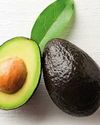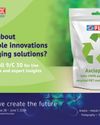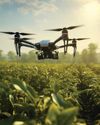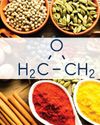Since it became known that plastic residue can find its way into the food chain in the form of socalled micro plastic, the general public has realized that plastic packaging is less environmentally friendly than expected and that it requires increased recycling efforts.

For other materials, recycling mechanisms have been established for a long time. Packaging steel, for example, has been at the forefront of recycling for years, even compared to glass, aluminum or cardboard.
Packaging steel reached a new high in 2015 with a recycling rate of 77.5 percent in Europe (EU plus Norway and Switzerland), an increase of 1.5 percent from the previous year. As a result, 2.7 million tons of steel were returned to the production process1.
Beverage cans in particular are in high demand due to their popularity among young adults and teenagers, as well as the increasingly important convenience factor: Cans can be opened easily and ensure a long shelf-life. They are also practical in handling, easy to stack, and, thanks to their stability, they are resistant to damage – and all this at a very low weight.
Energy-saving, highly recyclable and resource-efficient
According to research carried out by cyclos HTP on behalf of thyssenkrupp, a 0.5-liter beverage can made from tinplate is 91 percent recyclable. A number of other features, developments, and achievements ensure that packaging steel is at the forefront of sustainability. The packaging processes and the material itself provide optimum product protection and preservation, which means the cans do not need to be cooled during production or transport to the end customer.
When it comes to recycling, packaging steel has been outperforming other materials for years. In Germany for example, 90.8 percent of steel packaging was recycled in 2016. “Among other things, this has to do with its magnetic properties, which enable the material to be separated from other waste easily – whether in household waste or other waste cycles.
Denne historien er fra July 2018-utgaven av Food Marketing & Technology - India.
Start din 7-dagers gratis prøveperiode på Magzter GOLD for å få tilgang til tusenvis av utvalgte premiumhistorier og 9000+ magasiner og aviser.
Allerede abonnent ? Logg på
Denne historien er fra July 2018-utgaven av Food Marketing & Technology - India.
Start din 7-dagers gratis prøveperiode på Magzter GOLD for å få tilgang til tusenvis av utvalgte premiumhistorier og 9000+ magasiner og aviser.
Allerede abonnent? Logg på

Avocados: Health Benefits And Sustainable Cultivation
ATTRACTIVE GROWTH SEGMENT - In only a few years, the avocado has developed from being a rather a and has become an integral part of modern cuisine and in restaurants throughout Europe and beyond.

UFlex to Showcase Innovative and Sustainable Printing and Packaging solutions at DRUPA 2024
U Flex Limited, India's largest multinational flexible packaging and solutions company, is participating in DRUPA 2024, the premier global trade fair for print and packaging innovations, scheduled to take place in Dusseldorf, Germany from March 28 to June 7, 2024.

Hubergroup and Manroland Goss unite for Sustainable Packaging Innovation
Hubergroup, a global specialist in and chemicals, has partnered with manroland Goss web systems, a leading provider of web offset printing solutions, in a strategic collaboration.

Technological Advancements in the Premium Flavour, Extract and Concentrate Industry
Food Marketing & Technology Magazine had the privilege of hosting the fourth edition of their business webinar on “Technological Advancements in the Premium Flavour, Extract and Concentrate Industry” with Paul Ahn, Global Sales Manager, Flavourtech.

Flavourtech's Origins: From Wine to Worldwide Flavor Solutions
LEON SKALIOTIS, CEO of Flavourtech - Discover how Flavourtech, founded over 40 years ago by an innovative winemaker in Australia, evolved from addressing grape juice desulphiting to revolutionizing flavor extraction and concentration across various industries.

How CPG Companies Can Adopt Better Sustainable Packaging Practices in 2024
Sustainability has gone mainstream. With more switching to consumers environmentally friendly brands, it's become a central theme across all industries.

The Evolution of the Protein Value Chain Sustainable Protein Systems for a Growing World
As the world's population is on course to surpass ten billion by 2050, our food systems face the challenge of providing sustainable nutrition without further harming harming the planet. Animal-based diets and the reliance on animal-derived proteins are significant contributors to environmental degradation and public health issues. Not only is the global population increasing, but the expanding middle class in developing nations is driving a surge in protein demand, intensifying the strain on our environment.

Implementing the Technological Intelligence in Agricultural Produce
It is estimated that by 2050 the I world's population will be around 10 billion. From employment generation to contribution to National Income, agriculture is important to all of us as agricultural produce is the core on which we survive. It contributes a significant portion to the economic prosperity of the developed nations and plays an active part in the economy of the developing countries as well.

Cocoa Crises: A Sweet Industry's Bitter Challenge
As a pastry chef and entrepreneur running a small-scale baking business, I have always believed in the magic of cocoa. From the velvety richness of couverture chocolate to the deep, earthy notes of cocoa powder to the creamy allure of cocoa butter, these ingredients are the essence of our creations.

Ethylene Oxide (ETO) Detection in Ready-Made Spice Mixes: Ensuring Food Safety
INTRODUCTION - In the world of culinary delights, ready-made spice mixes hold a cherished place, adding convenience and flavour to countless dishes. However, recent concerns over food safety have brought to light the presence of ethylene oxide (ETO) in some of these products.